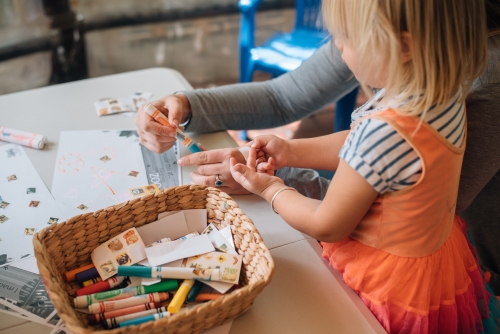Playtime is vital for your little one. Through play, they can develop important life skills that would help them prepare for experiences in the future as they grow older. There are two types of play: structured and unstructured, which are equally important for a child's well-being, growth, and learning.
What is Structured Play?
Structured play, also known as goal-oriented play, involves using logic to solve problems. These sorts of play activities are important to boost a child's confidence, resilience and team spirit as well as communication skills. Structured play will introduce the child to new ideas they may have never thought of themselves, which enhances their learning abilities.
The Benefits of Structured Play
- Exposes your child to a variety of activities they may not discover on their own.
- Helps build strength, coordination, and balance. Games involving movements help your child learn and master gross motor skills and stay active.
- Any skill you can think of can be taught during structured play such as holding a crayon, throwing a ball, and more.
- Improves language skills, including grammar, vocabulary, comprehension, and sequencing.
- Promotes social and emotional skills, like turn-taking, setting and respecting boundaries, and self-regulation.
Examples of Structured Play
- Following instructions to assemble a toy
- Organised sports such as football
- Card or board games with rules
What is Unstructured Play?
Unstructured play, sometimes called free play, is open-ended with unlimited possibilities. Unstructured play promotes creativity, as the child learns by using their creative thinking and logical reasoning. Being an open-ended play, it enriches the child's mind and vision in so many ways.
Benefits of Unstructured Play
- Free to experiment and explore new things.
- Develops problem-solving skills as they encounter unique opportunities to solve problems.
- Encourages the use of imagination while also supporting social and emotional development.
- Helps children become self-reliant and independent.
- Gives the child the opportunity to observe, respond, and adapt to social situations which are useful for later in life.
Examples of Unstructured Play
- Building blocks
- Colouring, drawing or painting on a blank paper
- Story-telling
- Running around in a playground
















